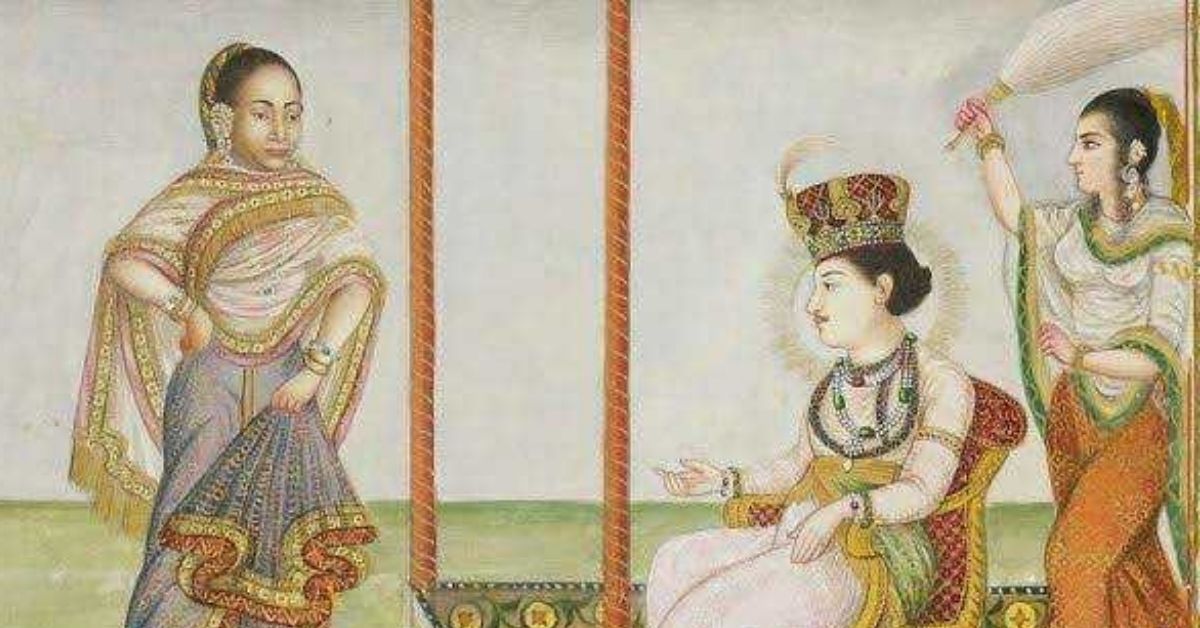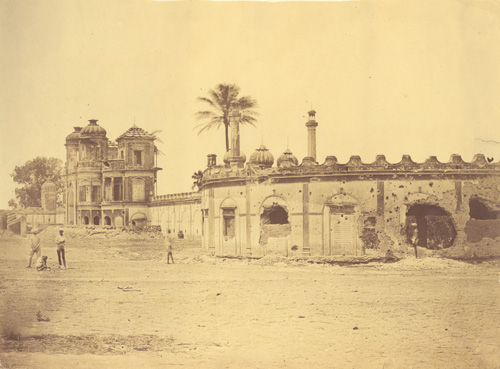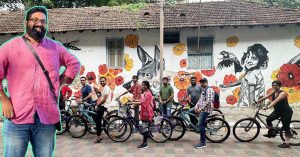The Forgotten African Woman Who Helped India Battle the British in 1857
Dr Rosie Llewellyn-Jones, a renowned British scholar, talks about an unnamed and unsung African woman who fought in Sikandra Bagh in Lucknow during the Revolt of 1857 and killed a number of British soldiers before being shot.

To talk about the Revolt of 1857 without mentioning the valiant women’s contributions who fought in the war would be a gross injustice. When we think of the war in the women’s context, Rani Lakshmibai and Begum Hazrat Mehal’s names first come to mind. Alongside, we discuss women from oppressed classes, such as Jhalkari Bai and Uda Devi, whose contributions to the war are less unheard of, arguably because they existed in the margins of society.
But the valour of another woman, who redefines what it means to be unsung, remains mostly absent from history textbooks. This unnamed woman, who was an African, is briefly talked about in Reminiscences of the Great Mutiny 1857-59, published in 1910 by William Forbes-Mitchell. He says that once the battle in Sikandra Bagh in Lucknow was over, some British troops took shade under a giant peepal tree, with several dead bodies, including those of their own, lying scattered across the ground. Captain Dawson noted how all the bodies appeared to have been shot from above.
He requested one of his men to look up at the trees and see if someone was hiding in the thick leaves and branches. “I see him, sir!” the trooper shouted back. He cocked his rifle and fired, and down fell a limp body. Forbes-Mitchell writes that the body which fell from the trees was dressed in a “tight-fitted red jacket” and “rose-coloured silk trousers”. When the jacket burst open, it was revealed that the body was that of a woman’s. The trooper lamented his actions, and said, “If I had known it was a woman, I would have rather died a thousand deaths than have harmed her.”
“All we know about her comes from William Forbes-Mitchell’s book,” Dr Rosie Llewellyn-Jones, a British scholar, tells The Better India. “She fought to the death in Sikandar Bagh and killed several British soldiers.”

So how did this African woman arrive in India in the first place?
“A considerable number of African slaves were imported to India by Arab slave traders, sometimes in collaboration with Indian slave traders,” Dr Rosie says. “This had been going on for centuries, where men, women, and children were being brought in from East Africa. So it’s possible our unnamed woman soldier either came directly from Africa or was born in India to African parents. King Wajid Ali Shah was fond of African women and women of mixed African/Indian blood, and Begum Hazrat Mahal herself was the daughter of an African slave.”
The Awadh Army, under Wajid Ali Shah, had a Hubshiyan Pulton, or the Black Platoon, Dr Rosie says. This was made up of African soldiers. “There wouldn’t have been any women in the platoon, but we know the king had a female cavalry bodyguard. British writers described them as ‘Amazons’ — female soldiers. This unnamed woman was almost certainly a part of this group. There is a Gulabi Pulton mentioned in the King’s Army, and it is possible that this was the name of the bodyguard. It is quite a feminine name for a platoon, and if you look at the description of what she was wearing, a red jacket and rose-coloured silk trousers, this makes sense,” Dr Rosie adds.
Dr Rosie recently discussed this unnamed woman’s contributions in a session she held called Battlefield Lucknow, which was a part of the Sanatkada Lucknow Festival. “Unfortunately, we don’t know about her and she is probably one of the many unsung heroes of the time,” she said in the lecture.
She is working on a chapter in a book titled India’s Battles, which is about Lucknow in 1857-58, as part of a series by Harper Collins India. The chapter discusses the history of African women and men in Awadh, and “how their loyalties during the Uprising of 1857/58 were to determine their future treatment by the British”. She says it is a shame that the African men and women who came to Lucknow without their consent fought bravely alongside a foreign king against the British, but don’t have a memorial of their own in Lucknow.
Edited by Yoshita Rao
This story made me
-
97
-
121
-
89
-
167
Tell Us More
We bring stories straight from the heart of India, to inspire millions and create a wave of impact. Our positive movement is growing bigger everyday, and we would love for you to join it.
Please contribute whatever you can, every little penny helps our team in bringing you more stories that support dreams and spread hope.


















